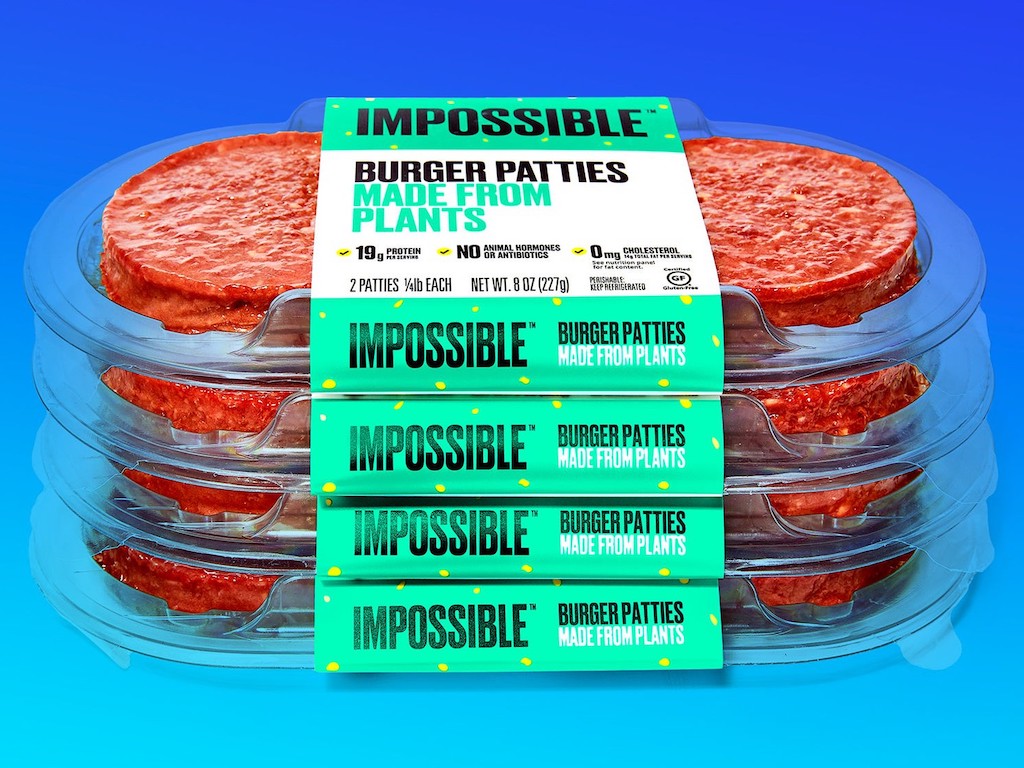2 Mins Read
As Impossible Foods expands its retail distribution to over 11,000 locations nationwide in the U.S., the company reports that the vast majority of its sales are now coming at the expense of animal-derived meat. These figures emerging from recent weeks is an indicator of how consumers are now increasingly choosing plant-based alternatives over animal counterparts as the coronavirus pandemic exposes the dangers of the meat supply chain.
Now supplying its plant-based meat alternatives to more than 11,000 supermarket locations in the U.S., representing a 77-fold jump in its retail footprint within just 6 months time, Impossible Foods is reporting that its sales are replacing animal meat purchases. According to data collected by Chicago-based analytics firm Numerator, 92% of sales of its famous bleeding plant-based Impossible Burger is directly displacing animal-derived meats from consumers who are actively shifting away from all meat categories.
“Three out of four Americans now live within 10 miles of a grocery store where they can buy Impossible Burger. And when people cook it at home, they start telling friends and family about it,” said Dan Greene, the brand’s senior vice president for sales. “Our retail surge has become a powerful flywheel for long-term growth.”
Read: 10 revelations made by Impossible’s senior execs at their latest conference
Impossible also revealed that a significant portion of its retail sales growth has come from consumers in the U.S. who are trying its plant-based products for the first time, with the percentage of first-time customers doubling every single month since April. This is in line with the broader shift towards all plant-based alternative meats recorded in the country since the pandemic struck, as shoppers become increasingly concerned about food safety, health and sustainability while the meat supply chain faces unprecedented challenges due to widespread slaughterhouse outbreaks.
Three out of four Americans now live within 10 miles of a grocery store where they can buy Impossible Burger. And when people cook it at home, they start telling friends and family about it. Our retail surge has become a powerful flywheel for long-term growth.
Dan Greene, Senior Vice President of Sales at Impossible Foods
Made primarily from soy protein, coconut oil, sunflower oil and potato protein, Impossible’s plant-based burger leaves a far lighter footprint on the planet while containing all the nutrients you would get from real meat, including protein and iron. According to the brand, each burger uses 96% less land, 87% less water and emits 89% fewer greenhouse gas emissions compared to its animal counterpart – making every sale that comes at the expense of the latter a step forward in reducing the footprint of our diets.
In addition to its flagship product, Impossible has launched Impossible Sausage, a plant-based pork patty that is now on Starbucks menus nationwide. It recently launched the Impossible Sausage in Hong Kong in partnership with Starbucks and a number of restaurants across the city, marking the product’s first international launch.
Lead image courtesy of Impossible Foods.




